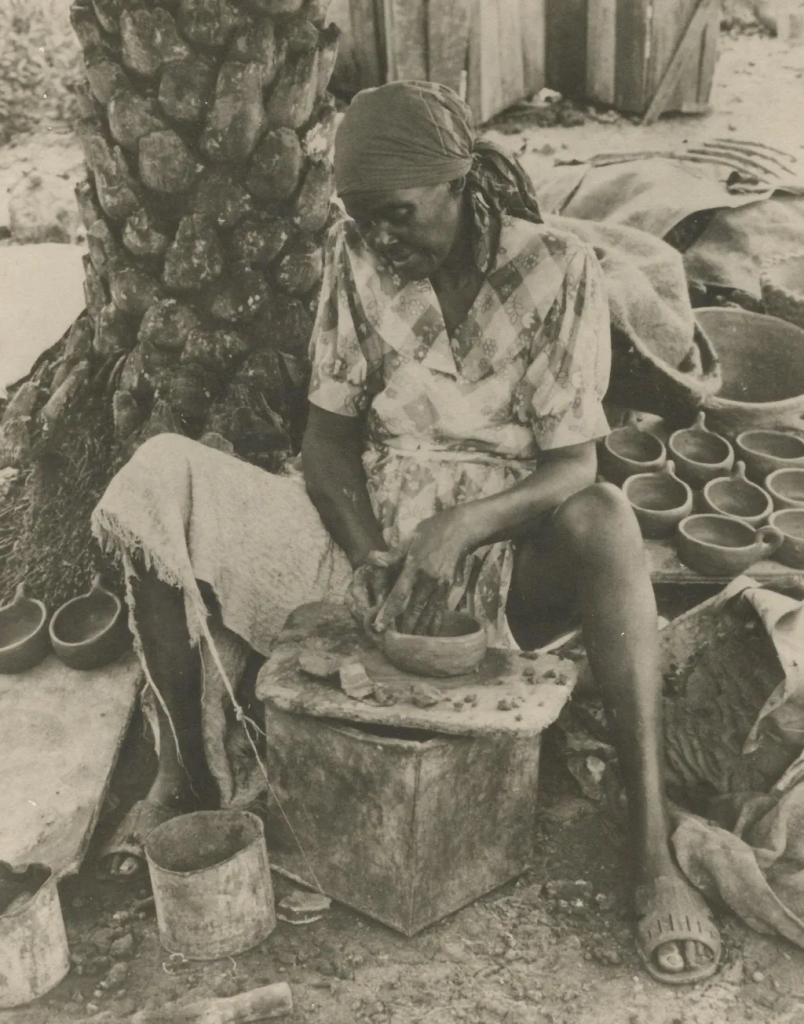OBEAH
It is believed that Obeah originated from the Ashanti and Koromantyn tribes found in Africa, specifically from the Gold coast, now the Republic of Ghana. Known as Obeye in some parts of Africa, it was introduced to the Caribbean by Slaves that were brought from Africa. Known in Antigua and Barbuda, and Jamaica as Obeah, it is mastering the art of channeling supernatural forces and spirits for ultimate personal empowerment. It is known by various powerful names across the Caribbean islands: Shango in Trinidad, Santería in Cuba,1 Vodou or Voodoo in Haiti,2 and Ju-Ju in the Bahamas.3
Slaves use obeah to aid in their daily labors… There’s a story about a washer woman on a sugar estate who consulted an obeah man to help her escape the fifty lashes awaiting her for mistakenly staining her manager’s shirt with the juice of a cashew. The stain removal, which was reportedly successful, involved an elaborate ceremony with incantations spoken aloud,the appearance of two small black “beings” on the shirt, and the use of a powder to induce three sneezes by the manager.( Lightfoot, 2015)
Slaves’ desire for time and space to socialize spawned many informal institutions, including the practice of obeah. Obeah funerals involved lengthy processions in which the life of the deceased was recounted in song accompanied by the rhythm of a pebble-filled calabash. At Christmastime, Obeah believers flocked to cemeteries to host extensive feats in honor of deceased loved ones at their gravesites.

Image from David Nutt – Journal “Folk-Lore: A Quarterly Review of Myth, Tradition, Institution & Custom” volume 4. 1893
Influence on everyday practices
The culture of enslaved individuals was largely shaped by their daily activities and interactions with their environment. As noted by Bardoe (2015), “The way in which enslaved laborers organized their daily activities and negotiated the built environment of the plantation for their own benefits comes to the forefront of examination of daily practices… This evidence demonstrates that the rich, Afro-Antiguan culture developed among the enslaved laborers and this culture may have helped enslaved laborers develop a sense of community in opposition to the colonial elite.” This Afro-Antiguan culture was deeply influenced by West African traditions, with foodways being a key example of how enslaved people preserved and adapted their cultural heritage. One prominent cultural expression was their pottery: Afro-Antiguan ceramics were hand-built, low-fired earthenware used in daily life, particularly for cooking. These pots were integral for preparing traditional dishes, such as boiling Yubbas, frying, and storing water, helping to foster a sense of identity and community among the enslaved population.

Picture from the National Museum of Antigua and Barbuda
- Santeria: The worship of African deities, as it is practised in Cuba today, is known as santeria.The deities and the men and women who work with them are known by the Spanish words santos, santeros, and santeras, or by the Yoruba words orisha, babalorisha, and iyalorisha. (Oxford English Dictionary)
- Voodoo: A religion practised in parts of the Caribbean (esp. Haiti) and the southern United States, combining elements of Roman Catholic ritual with traditional West African religious rites, and characterized by belief in sorcery and spirit possession. (Oxford English Dictionary)
- Juju: In certain West African religious or spiritual traditions: an object revered for its powers or ability to influence the material world or human affairs, esp. one used as a charm or means of protection. (Oxford English Dictionary)